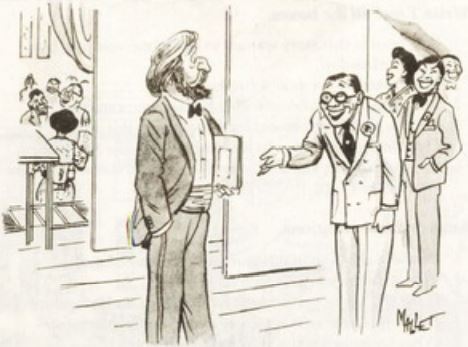

Grammar


Tenses


Present

Present Simple

Present Continuous

Present Perfect

Present Perfect Continuous


Past

Past Simple

Past Continuous

Past Perfect

Past Perfect Continuous


Future

Future Simple

Future Continuous

Future Perfect

Future Perfect Continuous


Parts Of Speech


Nouns

Countable and uncountable nouns

Verbal nouns

Singular and Plural nouns

Proper nouns

Nouns gender

Nouns definition

Concrete nouns

Abstract nouns

Common nouns

Collective nouns

Definition Of Nouns

Animate and Inanimate nouns

Nouns


Verbs

Stative and dynamic verbs

Finite and nonfinite verbs

To be verbs

Transitive and intransitive verbs

Auxiliary verbs

Modal verbs

Regular and irregular verbs

Action verbs

Verbs


Adverbs

Relative adverbs

Interrogative adverbs

Adverbs of time

Adverbs of place

Adverbs of reason

Adverbs of quantity

Adverbs of manner

Adverbs of frequency

Adverbs of affirmation

Adverbs


Adjectives

Quantitative adjective

Proper adjective

Possessive adjective

Numeral adjective

Interrogative adjective

Distributive adjective

Descriptive adjective

Demonstrative adjective


Pronouns

Subject pronoun

Relative pronoun

Reflexive pronoun

Reciprocal pronoun

Possessive pronoun

Personal pronoun

Interrogative pronoun

Indefinite pronoun

Emphatic pronoun

Distributive pronoun

Demonstrative pronoun

Pronouns


Pre Position


Preposition by function

Time preposition

Reason preposition

Possession preposition

Place preposition

Phrases preposition

Origin preposition

Measure preposition

Direction preposition

Contrast preposition

Agent preposition


Preposition by construction

Simple preposition

Phrase preposition

Double preposition

Compound preposition

prepositions


Conjunctions

Subordinating conjunction

Correlative conjunction

Coordinating conjunction

Conjunctive adverbs

conjunctions


Interjections

Express calling interjection

Phrases

Sentences


Grammar Rules

Passive and Active

Preference

Requests and offers

wishes

Be used to

Some and any

Could have done

Describing people

Giving advices

Possession

Comparative and superlative

Giving Reason

Making Suggestions

Apologizing

Forming questions

Since and for

Directions

Obligation

Adverbials

invitation

Articles

Imaginary condition

Zero conditional

First conditional

Second conditional

Third conditional

Reported speech

Demonstratives

Determiners


Linguistics

Phonetics

Phonology

Linguistics fields

Syntax

Morphology

Semantics

pragmatics

History

Writing

Grammar

Phonetics and Phonology

Semiotics


Reading Comprehension

Elementary

Intermediate

Advanced


Teaching Methods

Teaching Strategies

Assessment
A smart interpreter
المؤلف:
L.A Hill
المصدر:
Advanced steps to understanding
الجزء والصفحة:
20-1
2/9/2022
1986

A famous writer who was visiting Japan was invited to give a lecture at a university to a large group of students. As most of them could not understand spoken English, he had to have an interpreter.
During his lecture he told an amusing story which went on for her a long time. At last he stopped to allow the interpreter to translate it into Japanese, and was very surprised when the man did this in a few seconds, after which all the students laughed loudly.
After the lecture, the writer thanked the interpreter for his good work and then said to him, now please tell me how you translated that long story of mine into such a short Japanese one.
"I didn't tell the story at all, the interpreter answered with a smile. “I just said, "The honorable lecturer has just told a funny story, you will all laugh, please."
A Which of these sentences are true (T) and which are false (F)?
Write T or F in the boxes.
- The famous writer spoke Japanese well.
- He told the students a long funny story.
- The interpreter took rather a long time to tell the story.
- The interpreter told the students a different funny story.
- The students did not understand the lecturer's funny story at all.
- The students laughed because the interpreter told them to.
B Answer these questions.
- What invitation did the writer in this story receive?
- Why did he need an interpreter?
- What did he do during his lecture?
- Why did he stop after that?
- Why was he surprised then?
- What did the students do?
- What did the writer ask the interpreter after his lecture?
- And what did the interpreter answer?
C Write this story. Choose the more suitable word each time.
My interpreter was not (young, youthful) (he was actually over 45), but he had a (young, youthful) face, a very black, (silky, silk) moustache and an orange (silk, silky) tie.
He interpreted in a loud, (confident, confidential) voice, although he had earlier confessed to me (confidentially, confidently) that he really felt very nervous.
Although he had little practice at interpreting, he was more (skillful, skilled) at translating s (imaginative, imaginary) language, and more (sensible, sensitive) to its sounds, than many a far more (skillful, skilled) interpreter. I particularly liked his translation of a poem about an (imaginary, imaginative) island called Lealoa.
 الاكثر قراءة في Advanced
الاكثر قراءة في Advanced
 اخر الاخبار
اخر الاخبار
اخبار العتبة العباسية المقدسة

الآخبار الصحية















 قسم الشؤون الفكرية يصدر كتاباً يوثق تاريخ السدانة في العتبة العباسية المقدسة
قسم الشؤون الفكرية يصدر كتاباً يوثق تاريخ السدانة في العتبة العباسية المقدسة "المهمة".. إصدار قصصي يوثّق القصص الفائزة في مسابقة فتوى الدفاع المقدسة للقصة القصيرة
"المهمة".. إصدار قصصي يوثّق القصص الفائزة في مسابقة فتوى الدفاع المقدسة للقصة القصيرة (نوافذ).. إصدار أدبي يوثق القصص الفائزة في مسابقة الإمام العسكري (عليه السلام)
(نوافذ).. إصدار أدبي يوثق القصص الفائزة في مسابقة الإمام العسكري (عليه السلام)


















